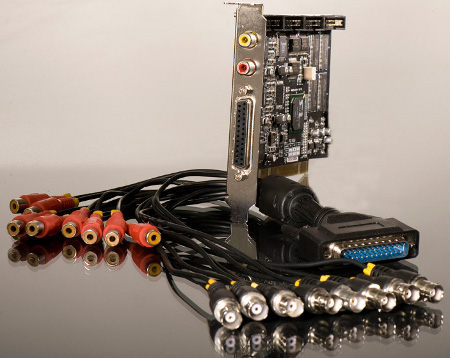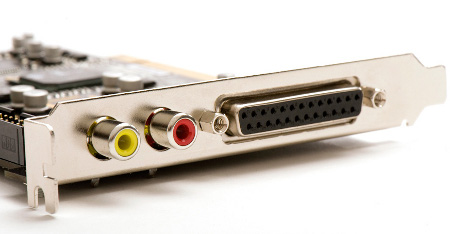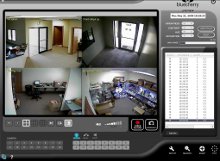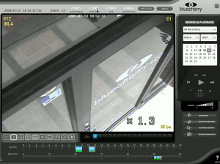GPL’d Linux driver released for MPEG-4 compression
Jun 18, 2010 — by Eric Brown — from the LinuxDevices Archive — 27 viewsBluecherry released an open source driver for version 2 of its Linux-based compression card for MPEG-4 digital video recording. Redesigned around the Linux kernel's API for Video (Video4Linux) and Audio (ALSA), the GPL-licensed driver primarily targets the Bluecherry compression cards and related Ubuntu-based video surveillance software, but can be used for a variety of video applications.
The Bluecherry driver is billed as the first multi-input MPEG-4 hardware compression GPL driver written around the Linux kernel's API. The driver, which has been published under GPL on git.kernel.org, was rewritten from scratch for Bluecherry's similarly revamped version 2 of its DVR software and cards. However, the driver can be modified for a variety of MPEG-4 hardware compression applications, says the company.
The new Linux driver revamps a previous open source driver that "was pretty pathetic to say the least," according to chief developer Ben Collins in his blog. "Most of it was just a kludge of the Windows driver, exposing all of the functionality, but with little effort to make it Linux-savvy."

Bluecherry compression card
(Click to enlarge)
The Bluecherry MPEG-4 compression driver can load up to 16 MPEG-4 and JPEG encoders, as well as 16 audio (ALSA) devices, says Bluecherry. The driver is also said to enable an uncompressed YUV display port that supports modifications of the composite video output.
For example, the display port enables a quad view display, as shown in the Bluecherry surveillance software screenshot below. By having this functionality supported in the driver, developers can save hundreds of dollars, since they would not necessarily need an external video quad or multiplexer to combine separate cameras into one video output, claims the company.
The driver requires technical knowledge of using Video4Linux API, says Bluecherry, and currently only covers MPEG-4 cards. Within several months, the company plans to develop a driver for H.264 compression.

Bluecherry card ports
(Click to enlarge)
In addition to the video inputs, the Bluecherry cards supply an RCA output, as well as up to 16 RCA audio inputs and one RCA audio output. The cards are said to support audio sampling rates of 8KHz or 16KHz. The cards are are further equipped with a watchdog timer and reset cable, and provide options including eight-port sensor and four-port relay interfaces.
The cards require an Intel or AMD-based desktop PC with a minimum of 1.6GHz clock rate and 512MB RAM (1GB for advanced features). An Nvidia GeForce or nForce video card is also required, along with a hard drive, says Bluecherry.


Bluecherry surveillance software
(Click on either to enlarge)
The software ships with web- and Windows-based remote clients, as well as remote access from mobile browsers, including iPhone or Android phones. A software development kit is not yet available, but the software is said to be supported with community features such as a bug tracker, forums, and an Ubuntu repository.
Availability
The Bluecherry v2 driver may be found on git.kernel.org, here, and is available from Ben Collins' blog announcement, here. The official Bluecherry announcement, with links to information on the company's compression cards and software should be here.
The Bluecherry compression cards are said to be available at the following prices, without the surveillance software: 4-port $200; 8-port $230; 16-port $375.
A story by The Inquirer about the Bluecherry driver may be found here.
This article was originally published on LinuxDevices.com and has been donated to the open source community by QuinStreet Inc. Please visit LinuxToday.com for up-to-date news and articles about Linux and open source.